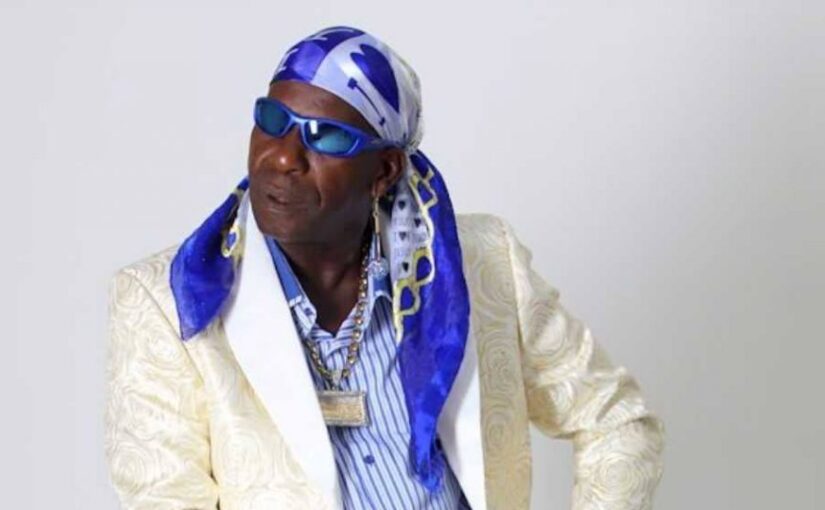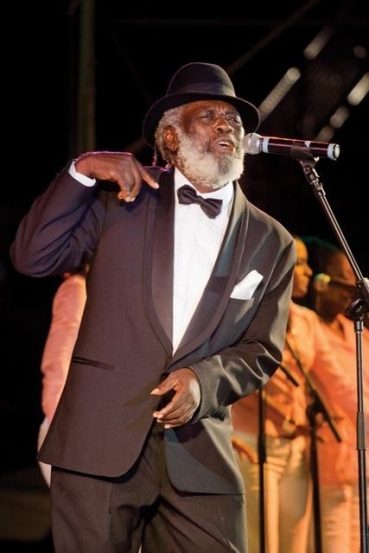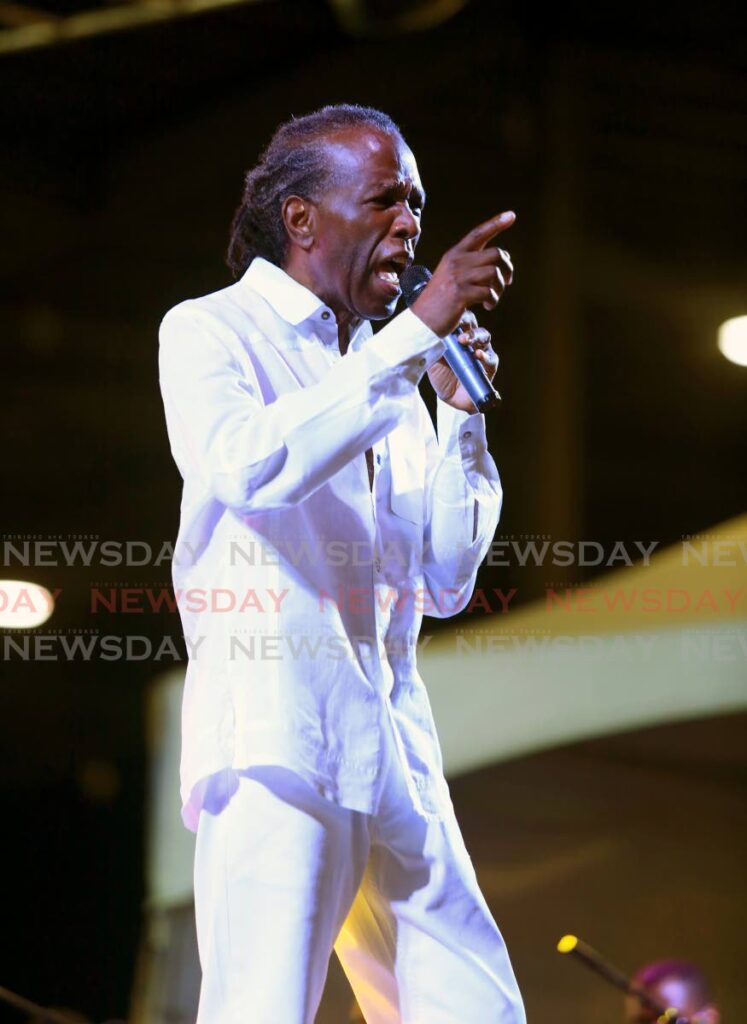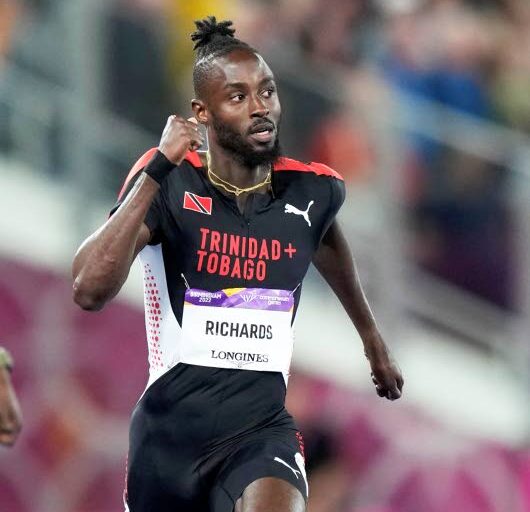Who slashed SuperBlue from Scorch 101’s greatest soca songs
Written by Newsday on December 8, 2024

ANU LAKHAN
I LIKE Machel Montano. A lot. If I had a team, he’d be on it. Nothing here is his fault. He has seven appearances, not including an Xtatic song or big collabs on the Scorch 101’s top soca hits list. Huzzah for him, I say.
The radio station has a hit of its own with this promotion. It’s hard to think of any other marketing effort this year that has created this kind of passionate excitement. The countdown counts down 101 days to Carnival 2025. In the vein of “Best of” lists like the ones done by Billboard, Scorch 101 has created a ranking of songs from musicians we know, ones we love and ones we just don’t get.
It’s described as “the 101 greatest soca hits ever.” I so desperately want to quibble over “the greatest” versus “their greatest,” but I’m not up for an aneurysm before seven in the morning.
They’ve been very open, posting their criteria everywhere possible. This may be a sign of the success of the campaign. People have tuned in, written in, battled and bantered online. Good to know the ground rules. The conversation’s flowing like cold beer and there’s no stopping it.
Not everyone is going to agree on the order of songs. Or who’s in and who’s out. There is a very definite scent of newness, and you begin to wonder where all your old soca favourites went. In the top ten there are two songs – Rupee’s Tempted to Touch at seven and Kevin Lyttle’s Turn Me On at two – that feel more like songs of Caribbean influence rather than soca.
The question of how soca is defined is hanging out there, but it’s not the most pressing matter at the moment. Because the moment calls for an answer to the question of who slashed SuperBlue (Austin Lyons), or Blue Boy (depending on what era we’re looking at).
You see, it matters little how or what soca is described as. SuperBlue is soca. Born in the year of the Bassman (we’re getting to that), if I look a little to pre-me, there was soca, and then for the rest of my life everything would be defined by it.
The soca we know and what is represented on the Scorch list bears no resemblance to what Ras Shorty I imagined when he thought he was revolutionising the sound. To be fair, I don’t think Shorty’s version is what we hear in our heads when we think of a soca sound. Apart from Om Shanti and one or two other Shorty songs, where did that idea go?
A younger version of me is trying to connect Rikki Jai’s 1989 Sumintra. That was from a time before-I-knew-about-chutney-soca. Here was a song doing what Shorty talked about. It was not soca referencing Indian food. It was not Bollywood rip-offs with English lyrics.
Present-age me is sceptical. There are other songs, but Sumintra did not feel othered, exoticised or parodied.
According to me, the holy trinity of our music is David Rudder, Shadow (Winston Bailey) and SuperBlue.
“Super?” people have asked for decades. Not Stalin or Chalkdust, or basically anyone else. No. SuperBlue and no other. It’s not complicated.
Rudder represents a thing that sits in our higher consciousness and our poetry and pathos. No one else has been able to Rudder.
Shadow is soul-deep, wring-your-heart-out and our poetry. No one will ever be like Shadow. These men have no heirs.
Rudder is in, with Madness, Trini to de Bone/High Mas and Bahia Girl. Shadow appears with Dingolay and Stranger. But (shriek, gasp, ventilator) not Bassman.

The Mighty Shadow (Winston Bailey). –
I was enjoying a nice non-combative talk with guitarist (and recent graduate of the UTT’s masters in Carnival studies) John Hussain and getting a little bit of education. “How do you feel about Bassman not making the list?” I asked. “It’s there,” he replied. “Not,” said I.
Hussain scrolls though the site while I explain that the only reason I ended up all but memorising the list was because I kept looking for Shadow’s Bassman. Because it had to be there.
Hussain thought Scorch’s exercise was quite worthy. Fire up the conversation. See what people think is relevant. “The only danger is people taking it at face value,” he said. The old cast-in-stone problem it’s so easy to land on. With a thud. With his discovery of Bassman’s omission, Hussain says, “That takes away all credibility from the list. Shadow didn’t only win Dimanche Gras with it, it was Road March. If I was teaching a fundamentals of soca class, Bassman would be on it.”
Longtime journalist and music podcaster Laura Dowrich-Phillips was part of Scorch’s selection panel. Where I floundered and fretted about how the criteria worked or were weighted, Dowrich-Phillips went to bat for the system in place.
In particular, things that had to do with how soca resonated with the rest of the Caribbean or the rest of the world – the things DJs know but I certainly do not – carried tremendous points. They really shifted the balance of a lot of things.
“That day (of her participation) proved soca is vast and deep,” she said. “At the start of the exercise everyone was asked to provide a list of their top ten soca songs. Every list was different.”
My closing question to her was the same as for Hussain. And her reply was the same. “But Bassman is there.” She added that in the long-list provided, Scorch 101’s CEO Kwesi “Hypa Hoppa” Hopkinson probably had every Shadow song – here was a man addicted to Shadow. “It’s not there, Laura.” It goes to show even the list-makers can be surprised by what is and is not on this list.
To return to the trinity and SuperBlue: he is our joy and abandon. He is – though seldom credited with it – also poetry. He is our best corporeal selves. He made the music faster, he made it unapologetically about fete and party and wine and wave, and everyone ran after him. Faster and faster. His heirs populate the 101 greatest songs.
And they forward-slashed him.
Super appears at 61 with Fantastic Friday, at 31 featured on Machel’s Soca Kingdom, 25 with Rebecca/Soca Baptist, and nine with Get Something and Wave/Signal to Lara/Bacchanal Time. Death by forward slashes.
Apart from Rudder, no one else is slashed. Super is slashed for what adds up to five songs, three in the top ten. This is why I had to declare my care for Machel early, early. This does not happen to him. He gets his spaces.
This is not a bitter pill or a hard lesson or any other neat phrase. This is wrong. If you have three songs deserving of being in the top ten, then you do. It beggars belief that the points were exactly the same.
SuperBlue has more fans than I have worries, and that’s saying a lot. He does not need me, but I need him, and people need to understand what his music underpins. What it has inspired. What it birthed. Would there have been a Bajan Invasion without him? Would our easy acceptance of Baptist rhythms have been possible without him?
Perhaps – no, certainly – there are bigger matters to be addressed. How do we define soca and how did we get there? The idea that the separation of calypso and soca can be very nuanced is aeons older than Machel’s Calypso Monarch-winner “soca is calypso, soca is calypso” (Soul of Calypso). I know, I know, but I argue with people I love all the time.
I don’t care if the number one slot goes to a song that heavily samples Cindy Lauper’s Time After Time. I want SuperBlue to have all his deserved spaces. Austin Lyons was born in 1956. Before his next birthday I can probably come up with a SuperBlue top 68.

Calypso legend David Rudder. – File photo
SCORCH’S TEN CRITERIA
Danceability: Soca is inherently a high-energy genre, so songs that naturally encourage dancing, with infectious rhythms and hooks, tend to rate higher.
Relevance: Classics that have stood the test of time, staying relevant and frequently played at parties, fetes, and events even years after their release, demonstrate lasting appeal and cultural significance.
Popularity: Songs that dominate during Carnival season and beyond, whether through widespread radio play or crowd reaction at fetes, or streaming numbers, reflect their mass appeal.
Chart performance: Songs that performed well on charts or streaming platforms, as well as fan favourites during Carnival season, show wide-reaching popularity. Many soca hits gain attention far beyond the Caribbean, demonstrating their global appeal.
Influence on genre: Songs that have influenced the sound or production style of soca for future artistes or generations often become defining moments for the genre and score highly.
Awards and recognition: Tracks that have won significant awards, like the Soca Monarch title or Road March in TT or Barbados, demonstrate recognition from both the industry and fans.
Music production: The technical brilliance of a song’s arrangement, mixing and mastering can elevate its appeal. High-quality production ensures that the energy, rhythm and vibrancy of soca are delivered flawlessly.
Lyrical content: While soca is often celebratory and light-hearted, some songs resonate for their storytelling or ability to capture the Carnival experience, island life, or social and political issues, adding depth to their appeal
Versatility: Some soca songs fit perfectly at both local events and international Caribbean music festivals, which speaks to their universal appeal and ability to set the tone in various settings.
Cultural impact: Songs that have become anthems during Carnival season or that represent iconic moments in soca history often earn higher spots. Tracks that resonate deeply within Caribbean culture and remain popular over the years play a significant role.
The post Who slashed SuperBlue from Scorch 101’s greatest soca songs appeared first on Trinidad and Tobago Newsday.




